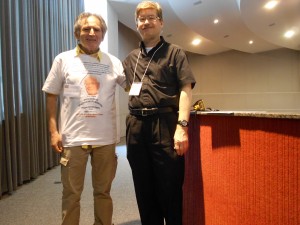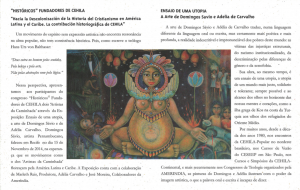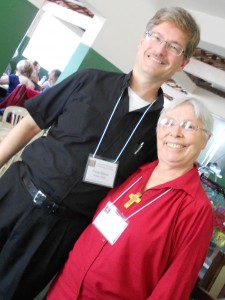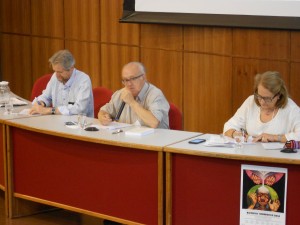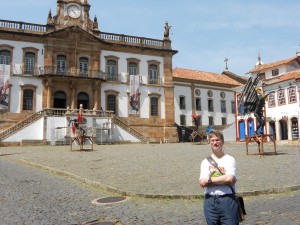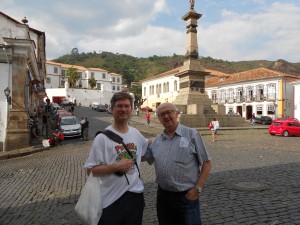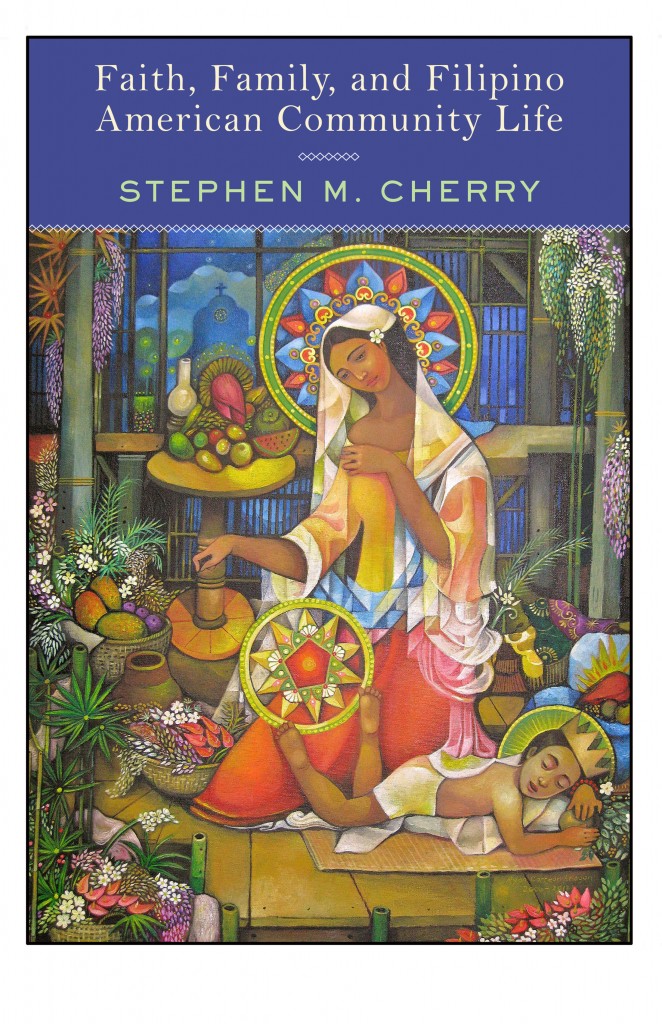Monday, August 22th UT SOC presentations:
Adut, Ari – Thematic Session: Scandal Time: Mon, Aug 22 – 2:30pm – 4:10pm
Session Organizer – Presenter on individual submission: Scandal and the Public Sphere
Bhatt, Wasudha
Table 06. Roundtables: Immigrants from a Race, Gender, and Class Perspective
Unit / Sub Unit: Section on Race, Gender, and Class / Section on Race, Gender, and Class
Scheduled Time: Mon, Aug 22 – 2:30pm – 3:30pm
Presenter on individual submission: Racist Medicine: Indian physicians’ experiences with racism, and sexism in U.S. medical workplaces
Julie Beicken
Table 03. Impacts and Outcomes
Unit: Section on Collective Behavior and Social Movements Roundtable
Scheduled Time: Mon, Aug 22 – 10:30am – 11:30am
Presenter: “The Impact of Eugenics on U.S. Coercive Sterilization Legislation in the Early 20th Century”
Blanchard, Sarah
Table 08. International and Comparative Perspectives on Educational Outcomes
Unit: Section on Sociology of Education Roundtables.
Scheduled Time: Mon, Aug 22 – 4:30pm – 6:10pm
Session Submission Role: Table Presider
Presenter: “Scholars without Borders: The Graduate School Trajectories of International Students at a Major Research University”
Brown, Letisha
Table 05. Democracy and Social Organization
Unit / Sub Unit: Theory Section / Section on Theory Roundtable
Scheduled Time: Mon, Aug 22 – 8:30am – 9:30am
Presenter: “The Black Panther Party for Self Defense: A Marxist, Maoist, Black Nationalist Organization”
Charrad, Mounira Maya
Section on Comparative/Historical Sociology Paper Session. Islam and the Modern World
Scheduled Time: Mon, Aug 22 – 8:30am – 10:10am
Presenter on individual submission: “Patrimonial Politics: Tunisia, Morocco, Iraq”
Crosnoe, Robert
Section on Sociology of Education Council and Business Meeting
Scheduled Time: Mon, Aug 22 – 2:30pm – 4:10pm
Session Submission Role: Participant
Cuvi, Jacinto
Regular Session. Historical Sociology/Processes II: States, Societies, & Symbolic Power
Scheduled Time: Mon, Aug 22 – 10:30am – 12:10pm
Presenter: “Blowing the institutional gridlock: informal institutions and symbolic action in the reform of Sunat”
Danielle Dirks (PhD 2011, Assistant Professor, Department of Sociology, Occidental College)
Student Forum Workshop. Different Types of Publication Opportunities for Students
Unit: Student Forum Sessions
Scheduled Time: Mon, Aug 22 – 2:30pm – 4:10pm
Session Submission Role: Panelist
Ha, Hyun Jeong, Section on Collective Behavior and Social Movements Paper Session.
Open Topic on Collective Behavior and Social Movements.
Scheduled Time: Mon, Aug 22 – 8:30am – 10:10am
Presenter on individual submission: “Islamic Feminism, A New Paradigm to Crack out Patriarchy in Egypt”
Paul Stanley Kasun
Table 10. Public Opinion on Immigration
Unit: Section on International Migration Roundtable
Scheduled Time: Mon, Aug 22 – 10:30am – 11:30am
Presenter: “Immigration Perspectives Structured Racism and Religion; Attitudes of Welcoming, Economic Threat, Illegal Immigration Toward Immigrants”
Lodge, Amy
Section on Aging and the Life Course Paper Session. Age and Sociological Imagination: Individual and Micro-level Dynamics
Scheduled Time: Mon, Aug 22 – 8:30am – 10:10am
Presenter: “Age and Embodied Masculinities: Mid-Life Gay and Heterosexual Men Talk about their Bodies”
McFarland, Michael
Table 23. Religion and Health
Unit: Section on Medical Sociology Refereed Roundtable
Scheduled Time: Mon, Aug 22 – 4:30pm – 6:10pm
Presenter: “Does a Cancer Diagnosis Influence Religiosity? Integrating a Life Course Perspective”
Mueller, Anna Strassmann
Table 08. International and Comparative Perspectives on Educational Outcomes
Unit: Section on Sociology of Education Roundtable.
Scheduled Time: Mon, Aug 22 – 4:30pm – 6:10pm
Non-Presenter: “Scholars without Borders: The Graduate School Trajectories of International Students at a Major Research University”
Table 18. Friends and Peer Networks in Schools
Unit: Section on Sociology of Education Roundtable.
Scheduled Time: Mon, Aug 22 – 4:30pm – 6:10pm
Non-Presenter: “Adolescent Society and the Social Dynamics of Friendship Formation in American High Schools”
Muller, Chandra
Section on Sociology of Education Council and Business Meeting
Scheduled Time: Mon, Aug 22 – 2:30pm – 4:10pm
Session Submission Role: Chair
Section on Sociology of Education Paper Session. Transitions, Adjustment, and Mobility in Educational Attainment
Unit: Open Topic on Sociology of Education (4 Sessions).
Scheduled Time: Mon, Aug 22 – 10:30am – 12:10pm
Non-Presenter: ” The Shape of the River from Middle through High School: Race, Gender, and Grade Trajectories”
Table 07. Academic and Social Determinants of College Attainment
Unit: Section on Sociology of Education Roundtable – Presider
Scheduled Time: Mon, Aug 22 – 4:30pm – 6:10pm
Table 08. International and Comparative Perspectives on Educational Outcomes
Scheduled Time: Mon, Aug 22 – 4:30pm – 6:10pm
Non-Presenter: “Scholars without Borders: The Graduate School Trajectories of International Students at a Major Research University”
Table 18. Friends and Peer Networks in Schools
Unit: Section on Sociology of Education Roundtable.
Scheduled Time: Mon, Aug 22 – 4:30pm – 6:10pm
Non-Presenter: “Adolescent Society and the Social Dynamics of Friendship Formation in American High Schools”
Pattison, Evangeleen
Table 02. Classical Theory and Contemporary Sociology
Unit: Section on Theory Roundtables
Scheduled Time: Mon, Aug 22 – 8:30am – 9:30am
Presenter: “Education and Stratification: The Role of Class and Status in Structuring Educational Opportunities”
Table 20. Extracurricular Influences on Equity in Academic Outcomes
Unit: Section on Sociology of Education Roundtable.
Scheduled Time: Mon, Aug 22 – 4:30pm – 6:10pm
Session Submission Role: Table Presider
Presenter: “The Role of Sports Participation on Advanced Math Course-taking for Black and White Males”
Pudrovska, Tetyana
Table 16. Mental Health
Unit: Section on Medical Sociology Refereed Roundtable
Scheduled Time: Mon, Aug 22 – 4:30pm – 6:10pm
Non-Presenter on individual submission: “Spousal Mental Health Concordance”
Table 23. Religion and Health
Unit: Section on Medical Sociology Refereed Roundtable
Scheduled Time: Mon, Aug 22 – 4:30pm – 6:10pm
Non-Presenter: “Does a Cancer Diagnosis Influence Religiosity? Integrating a Life Course Perspective”
Reid, Megan
Table 09. Race, Gender, Class & Policy
Scheduled Time: Mon, Aug 22 – 2:30pm – 3:30pm Roundtable
Presenter on individual submission: “Deservingness” and Waiting for Help After Hurricane Katrina”
Rodriguez, Nestor P.
Table 06. Immigrants from a Race, Gender, and Class Perspective – Roundtables
Scheduled Time: Mon, Aug 22 – 2:30pm – 3:30pm
Presenter: “Racist Medicine: Indian physicians’ experiences with racism, and sexism in U.S. medical workplaces”
Ryan, Tricia
Table 03. Comparative Health Policy
Unit: Section on Medical Sociology Refereed Roundtable
Scheduled Time: Mon, Aug 22 – 4:30pm – 6:10pm
Presenter: “Unintended Consequences to Health Reform: Patient Responses to Family Medicine and Village Health Committees in Kyrgyzstan”
Sakamoto, Arthur
C. Table 03. Migration
Unit: Open Refereed Roundtable
Scheduled Time: Mon, Aug 22 – 10:30am – 12:10pm
Non-Presenter: “Revisiting Malthus for Developed Nations? Non-Poor Population Growth as a Population Characteristic”
Sasson, Isaac
C. Table 03. Migration (3)
Unit: Open Refereed Roundtable
Scheduled Time: Mon, Aug 22 – 10:30am – 12:10pm
Presenter: “Revisiting Malthus for Developed Nations? Non-Poor Population Growth as a Population” Characteristic
Shafeek Amin, Neveen Fawzy
Table 03. Immigrant Education
Section on International Migration Roundtable
Scheduled Time: Mon, Aug 22 – 10:30am – 11:30am
Presenter: “Religiosity and Academic Achievement among Immigrant Adolescents in the U.S”
Shifrer, Dara
Section on Sociology of Religion Paper Session. Religious Movements and Institutions
Unit:Religious Movements and Institutions.
Scheduled Time: Mon, Aug 22 – 10:30am – 12:10pm
Presenter: “Education and Religion: Compromises toward the Preservation of a Separatist Community”
Sutton, April M
Section on Sociology of Education Paper Session. Transitions, Adjustment, and Mobility in Educational Attainment
Scheduled Time: Mon, Aug 22 – 10:30am – 12:10pm
Presenter: “The Shape of the River from Middle through High School: Race, Gender, and Grade Trajectories”
Table 22. Exploring the Influence of Cultural Capital Across Diverse Settings
Unit: Section on Sociology of Education Roundtable
Scheduled Time: Mon, Aug 22 – 4:30pm – 6:10pm
Session Submission Role: Table Presider
Thomeer, Mieke
Table 16. Mental Health
Unit: Section on Medical Sociology Refereed Roundtables
Scheduled Time: Mon, Aug 22 – 4:30pm – 6:10pm
Presenter on individual submission: “Spousal Mental Health Concordance”
Umberson, Deb
Section on Aging and the Life Course Paper Session. Age and Sociological Imagination: Individual and Micro-level Dynamics
Scheduled Time: Mon, Aug 22 – 8:30am – 10:10am
Non-Presenter: “Age and Embodied Masculinities: Mid-Life Gay and Heterosexual Men Talk about their Bodies”
Wheatley, M. Christine
Table 06. Legal Status and Deportation
Unit: Section on International Migration Roundtable
Scheduled Time: Mon, Aug 22 – 10:30am – 11:30am
Presenter: “Push Back: U.S. Immigration Policy, Deportations, and the Reincorporation of Involuntary Return Migrants in Mexico”
Williams, Christine L.
Special Session. Postindustrial Culture and the Flexible Self: Beyond the Cubicle
Scheduled Time: Mon, Aug 22 – 10:30am – 12:10pm
Session Submission Role: Discussant
Young, Michael
Thematic Session. Scandal
Scheduled Time: Mon, Aug 22 – 2:30pm – 4:10pm
Session Submission Role: Discussant
